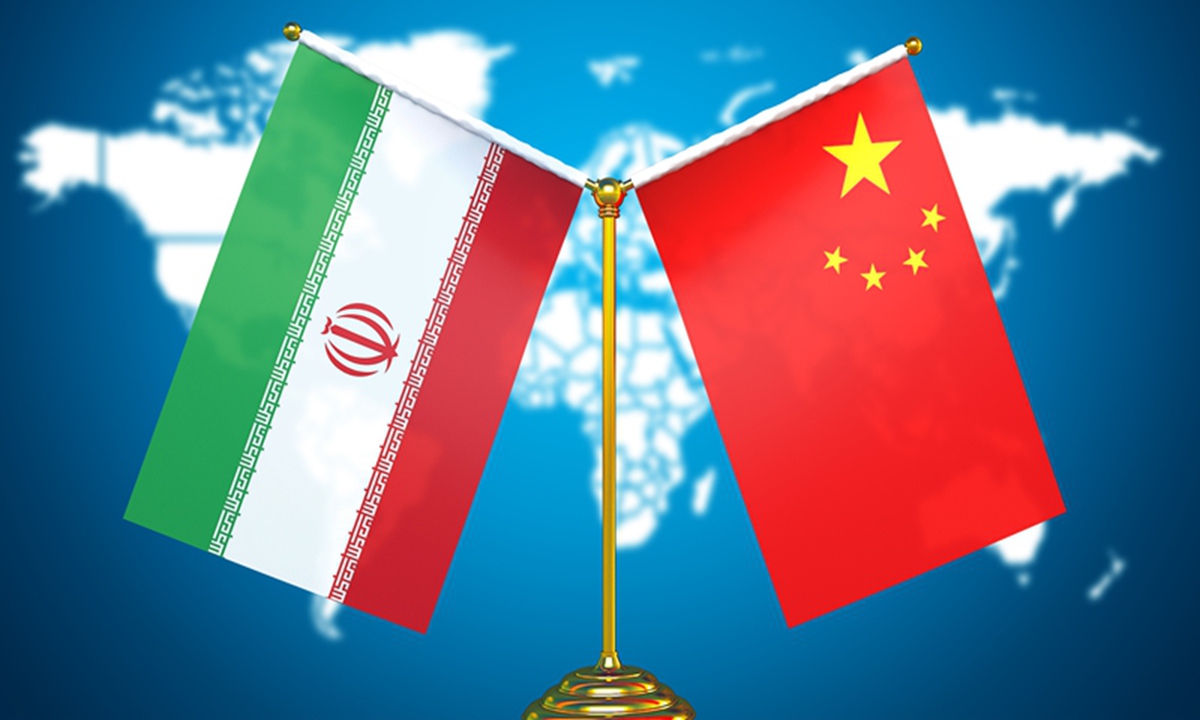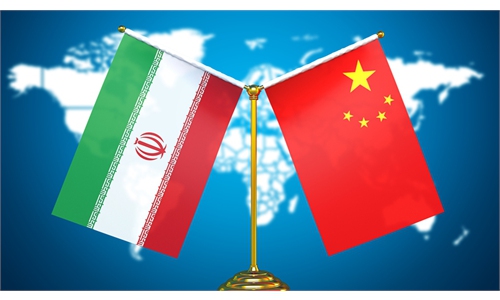
China Iran photo:VCG
The Chinese Foreign Ministry announced on Sunday that at the invitation of President Xi Jinping, President of the Islamic Republic of Iran Ebrahim Raisi will pay a state visit to China from Tuesday to Thursday. On the same day, the People's Daily published an article by Raisi under the Chinese title "Old friends are the best partners for future cooperation."
The two countries established a comprehensive strategic partnership when President Xi visited Iran in January 2016. After that, both sides have been striving to push forward the bilateral relations, including their cooperation under the framework of the China-proposed Belt and Road Initiative (BRI). It is expected that Raisi's China trip this week aims to promote further the strengthening of the two countries' ties and the implementation of their partnership.
In his Sunday article, the Iranian president thanked China for promoting his country's membership in the Shanghai Cooperation Organisation (SCO). On February 7, Raisi issued an order for implementing the law on Iran's membership in the organization, after the country signed a memorandum of commitment in September for its permanent membership in the SCO.
For Iran, SCO membership is a way to enhance the country's influence. On the other hand, Tehran's entry into the SCO demonstrates and strengthens the organization's openness and inclusiveness, enabling the SCO to play a more significant role in the Eurasian region.
Moreover, it also provides another new multilateral occasion for the Middle Eastern countries to enhance mutual understanding, because, apart from Iran, other countries in the Middle East have also expressed a strong desire to strengthen ties with the SCO. For example, Egypt, Saudi Arabia and Qatar gained the status of SCO dialogue partners in 2022.
Compared with the US, China is capable of maintaining good relations with both Saudi Arabia and Iran, two countries that are hostile toward each other. This shows that China's foreign policy which advocates independence and peace can indeed stand the test of time.
To be more specific, first, China does not interfere in the internal affairs of other countries. Second, China has always sought cooperation rather than encourage confrontation. When encountering regional disputes, Beijing promotes peace talks and plays a role in easing the situation all the time. China does not take sides by standing on one side against the other, or provoke disputes by inciting one side to confront the other. It never exacerbates conflicts in a bid to profit from them.
It is often said that we cannot choose our neighbors, but we can select the way to get along with them. And the proper way is to seek cooperation through mutual respect and peaceful coexistence, and solve problems through dialogue when running into problems. This is in the best interest of both sides. It is also what China has advocated and done.
In particular, the BRI put forward in 2013 has offered a new grip and platform for cooperation with the Middle East. On this basis, China regards development as a key to solving many problems, while using it to promote the resolution of some hot-spot issues. This explains why China can take a more active position in the Middle East, where relations between countries are complicated.
From both the perspective of history and reality, China and the Middle East have many similarities. As two civilizations with a long history, they had the experience of walking from ancient glory to being bullied in modern times. In the new era, both hold the goal and dream of rejuvenation and draw their lesson when exploring the path of modernization - that is, blindly copying Western systems does not work, while finding an approach that suits one's own condition is effective.
Compared with the rising influence of China in the Middle East, US' influence in the region is waning. Washington has exhausted its strengths with the several wars it waged in the region and its interference in the internal affairs of regional countries. It also discards justice and rules for the sake of its self-interest. As a result, Washington's credibility in the Middle East has dwindled, and people in the region distrust the US.
In the post-Cold War era, Washington had gotten used to bossing around and acting at will all over the world. In the Middle East, it often portrays Iran as a big "evil" and fans the flames to incite regional countries to confront Tehran. Iran's worsening relations with these countries, to many extents, can be attributed to the US behind the scene.
But the era when the US controls everything according to its own will is gone. Multipolarity is a major trend of global development, and the Middle East is one important polar of the multipolar world. In this context, as the region's awareness of independence increases, Middle Eastern countries are walking on a path that suits their national conditions more firmly.
Countries in the Middle East now seek to diversify the development of their diplomatic relations, including easing and improving relations with other regional countries and actively developing ties with external powers, such as China and Europe. From this perspective, strengthening bilateral relations between China and Middle Eastern countries, including Iran, is of positive significance for building a multipolar world free from Western hegemony.
The article was compiled by Global Times reporter Xia Wenxin based on an interview with Wu Sike, former Chinese special envoy on the Middle East issue. opinion@globaltimes.com.cn


